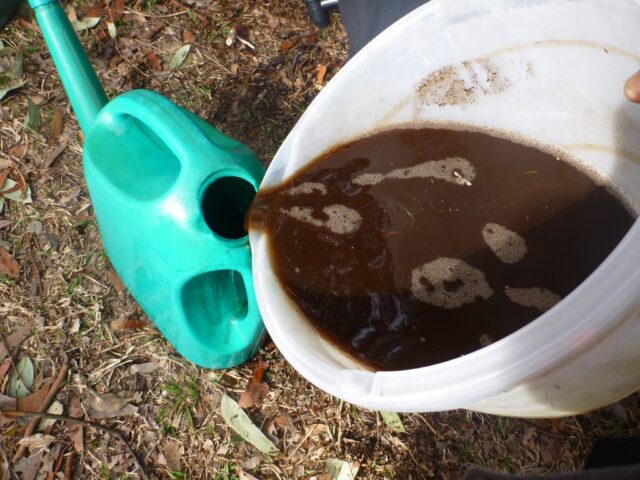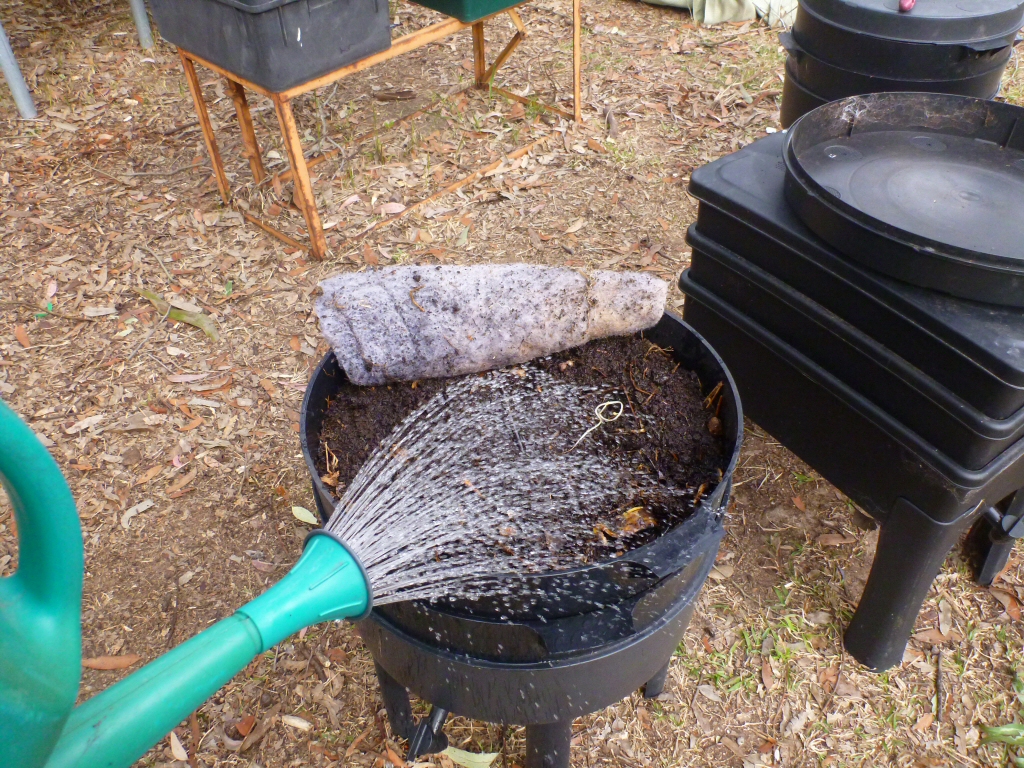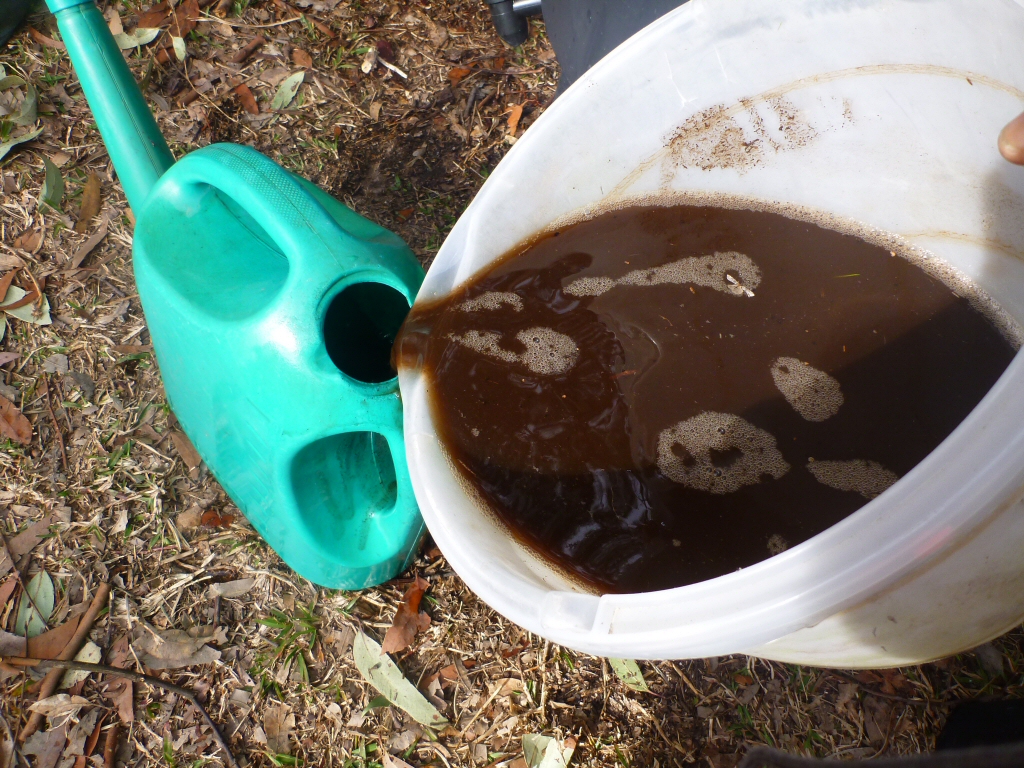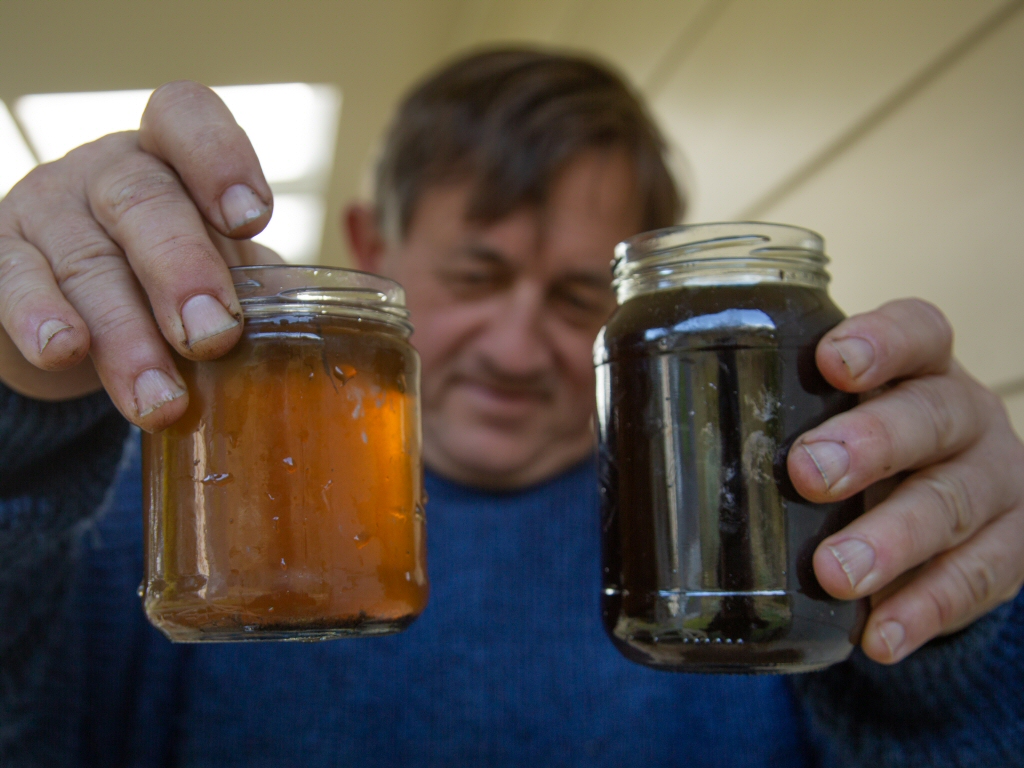Free liquid fertilisers!

Worm tea created from watering a worm farm
It requires surprisingly little effort to make your own organic fertilisers from various waste materials we generate every day around the house. Not only does this help the environment, it also saves money in fertiliser and potting mix costs. It can also be done effectively in very small spaces, so even if you are a high density dweller, it is still very practical to make your own fertiliser.
There are a number of options as to the type of organic fertiliser you can create. Liquid organic fertilisers give an instant boost to your plants as the dissolved nutrients are immediately available to the plant which is particularly important for very fast growing vegetables such as tomatoes and lettuce.
Liquid organic fertilisers
WORM JUICE – Worm farms are one of the best ways to make organic fertiliser that is highly nutritious and adds beneficial microbes to your soil and potting mix. As the worms chew through your kitchen scraps and other organic materials such as cardboard and shredded paper, they release nutrients and also add valuable humus that stores water and nutrients.
Collecting the liquid that accumulates naturally under your worm farm works quite well, however, it must be stressed that this liquid is generally fairly concentrated and should be diluted to a light brown colour (about the colour of a weak cup of tea). A second way to make your worm liquid fertiliser is to use a watering can to run about 10 litres of water through your worm farm. Putting a relatively large volume of water through at one time dilutes the fertiliser strength of the liquid down to something that is ready to use without further dilution. This process can be done every week if necessary. As water percolates through the worm farm, it picks up particles of worm castings as well as the plant nutrients that have been released from the break down of the organic materials the worms are feeding on. Plant nutrients need to be dissolved in water before a plant can take them up, so a liquid fertiliser means instant boost for your plants.
So, why are worm excretions so good for the garden? To help understand a bit more about this, let’s take a look at what happens when organic matter is consumed by an earthworm. When a worm eats, the food passes through the gut and as it does so the organic matter gets broken into smaller and smaller fragments which releases the various components in it. They can then be absorbed by the plants you are fertilising. As in the human stomach and its digestive process, a complex range of microbes are added to the digesting food and then excreted in the castings. These microbes are generally beneficial in the soil as they help to continue breaking down the organic materials in the worm castings and the soil. In addition to this, the castings also contain various essential nutrients for plant growth. Depending on what food you are using in your worm farm, the nutrients are usually in the right balance to replace what you and your plants are removing from the soil. Whatever way you choose to get worm castings into your garden, the plants and soil will benefit.
There is a three pronged benefit to using the liquid from worm farms as a fertilsier. Namely, a well balanced supply of essential nutrients, organic humus that builds the soil’s capacity to store water and nutrients, and a whole lot of beneficial microbes that help enhance soil and plant health in the same way that probiotics enhance the function of the human digestive system.
Check out my how-to video on making worm juice
LIQUID MANURE- If you have a chook house or some other free source of manure such as horse manure then fill an old pillow slip or Hessian bag with manure and plunge it into a bucket of water and allow it to soak for a few days. The nutrients from the decomposing manure will leach from the bag into the water. The resulting brew will need to be diluted down to the consistency of a weak tea before you apply it to your plants through a watering can.
BOKASHI COMPOSTING- This is an interesting form of composting invented in Japan that is particularly applicable to apartment dwellers. An airtight bucket with a snap on lid is filled with your kitchen scraps which are then sprinkled with a bran preparation that contains specific micro-organisms that begin the decomposition process within the bucket. These special microbes have evolved to grow and thrive in conditions where there is very little oxygen, hence the airtight bucket that also conveniently shuts out pests such as mice and cockroaches. At the base of the bucket there is a compartment with a tap to collect the liquid that results from the decomposition process. This liquid is diluted with 10 parts of water to each part of Bokashi liquid and is an excellent fertiliser. The solid residue left in the bucket when it is full can be buried in the garden, compost heap or worm farm where it breaks down very quickly to humus.
The bottom line is that with a small investment of time and effort there are several simple DIY ways to turn your kitchen scraps and other common household waste materials into rich liquid organic fertilisers that are a well balanced source of nutrition for your plants as well as adding priceless humus that builds up the health of your soil with beneficial microbes. And a healthy soil leads to a healthy, disease resistant plant.



